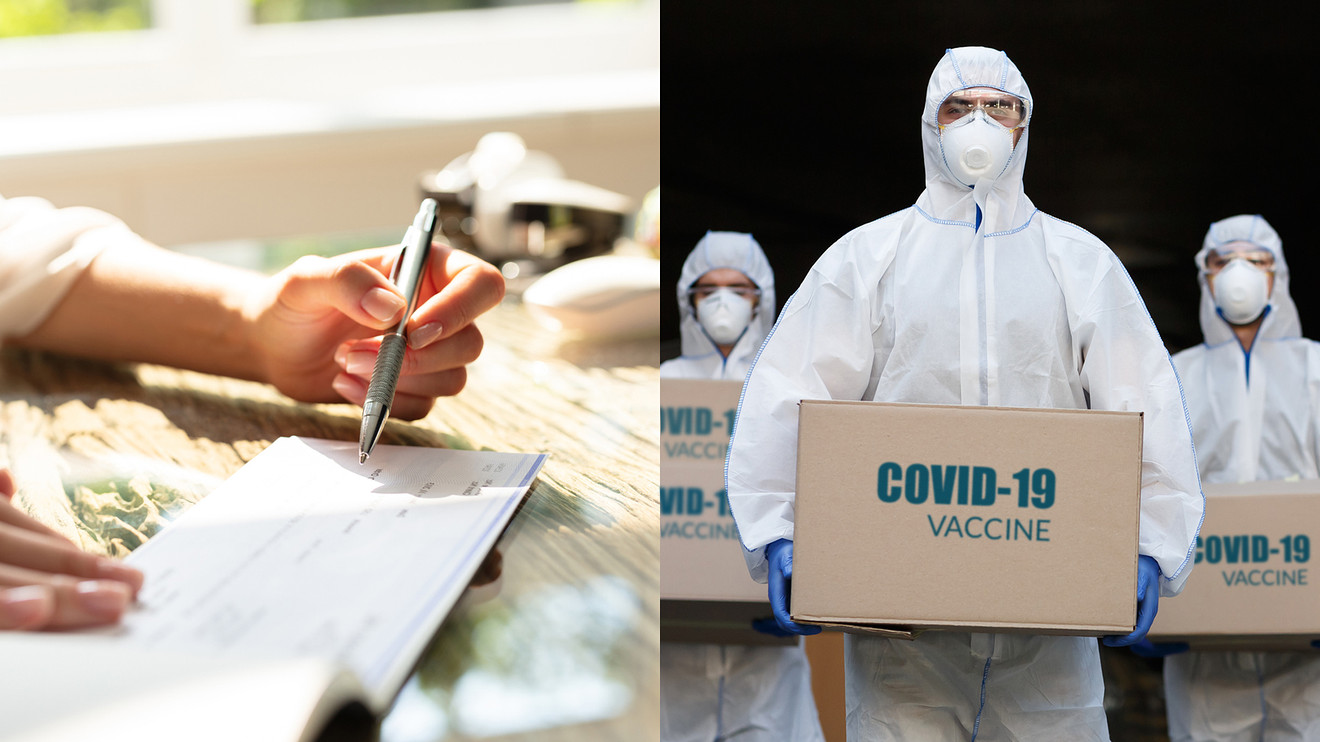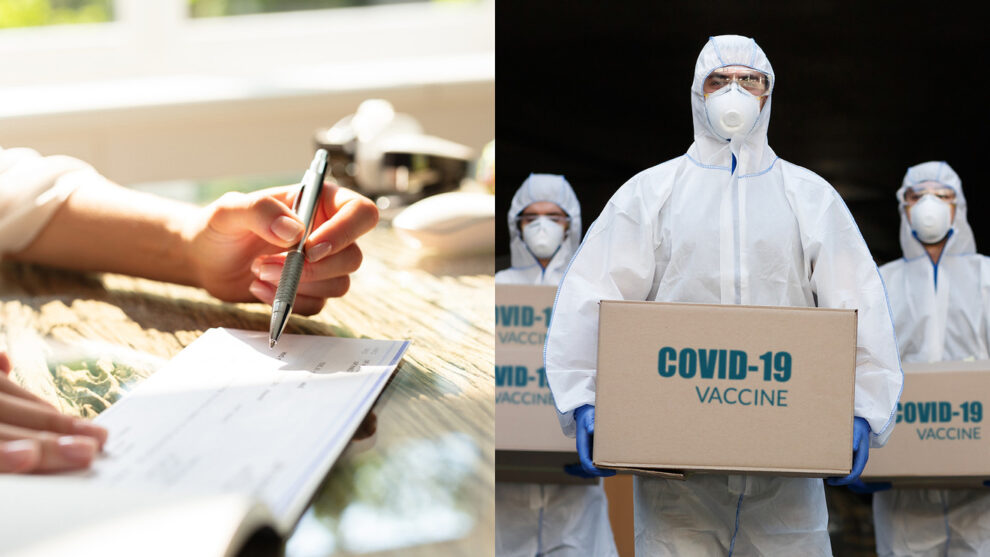
COVID-19 vaccine makers are aiming for swift government approvals in the United States, the United Kingdom and elsewhere, but the pandemic’s finish line remains far away.
The vaccine’s distribution and administration on a global scale looms ahead — and that’s where individual donors can make an impact this Giving Tuesday and beyond.
To be clear, the coronavirus vaccination effort is anything but a crowd-sourced donation effort. For example, United Kingdom government officials are paying for access to more than 350 million doses across seven developers. And America’s Operation Warp Speed is planning to have 300 million doses ready to go by January alone after investing billions in the initiative.
But there are still ways for people to put their money toward the unprecedented vaccination effort — especially with the federal government adding special 2020 tax incentives for people who make up to $300 in charitable contributions.
The upcoming vaccination rollout will be the biggest-ever public health initiative across the world, said Jennifer Alcorn, deputy director of Gates Philanthropy Partners, which is connected to The Bill & Melinda Gates Foundation. The effort will also happen at a moment when so many children across the world have gone this past year without access to more routine vaccinations.
“Between the two, everyday donors have such a big role to play across the board,” Alcorn said. While wealthy countries like the U.S. may be able to foot the bill, low- and middle-income countries may not be able to do the same, and that is where philanthropy can fill the gap.
Here’s a look at just of a few of the charities where donor money can facilitate access to the coronavirus vaccine and, ultimately, a path to recovery.
Gates Philanthropy Partners
There’s the Bill & Melinda Gates Foundation, the foundation of Microsoft MSFT, -0.53% co-founder Bill Gates and his wife, which has already pledged over $350 million to fight the pandemic around the world.
And then there’s the Gates Philanthropy Partners, a public charity affiliate of the foundation that gives out money in conjunction with the foundation. Anyone can donate to Gates Philanthropy Partners and the money is overseen by the same Gates Foundation staff that oversees the distribution of foundation grants, Alcorn explained.
Gates Philanthropy Partners started a “Combating COVID-19 Fund,” which has raised more than $140 million since mid-March. Around 60% of the money has so far gone to the research and development of therapeutics, Alcorn said.
Money from the fund has also gone, and will continue to go toward “filling the gaps for how the vaccine will be delivered” in low- and middle-income countries, Alcorn said. While some nations may have money for procurement, Alcorn said there may not be enough money for the next step. “We want to be able to help get vaccines from ports and get them to communities,” she said.
The Gates Foundation, Donors Choose, Charity Navigator, GivingTuesday and other organizations also created PowerOf.org in the spring, which is a platform connecting potential donors and volunteers with causes connected to the pandemic and its economic fallout.
UNICEF USA
UNICEF, the 74-year-old humanitarian organization founded in the wake of World War II, already obtains over 2 billion vaccines a year for outbreaks and typical vaccinations for almost 100 countries.
UNICEF, working with the Pan American Health Organization Revolving Fund, is responsible for procuring and supplying COVID-19 vaccine doses for 92 less affluent countries and it will help the roll out for 80 more affluent countries.
“This is an all-hands on deck partnership between governments, manufacturers and multilateral partners to continue the high-stakes fight against the COVID-19 pandemic,” UNICEF Executive Director Henrietta Fore previously said in a statement. “In our collective pursuit of a vaccine, UNICEF is leveraging its unique strengths in vaccine supply to make sure that all countries have safe, fast and equitable access to the initial doses when they are available.”
UNICEF is one of the organizations that Gates Philanthropy Partners has contributed to, Alcorn noted.
Though UNICEF didn’t immediately respond to a request for comment, the organization has seen a 318% increase in money donated via Charity Navigator compared to the same point last year, according to data from the charity evaluator.
DirectRelief
One aim of the 72-year-old humanitarian medical organization is providing disaster relief and gear. For example, after 2017’s Hurricane Maria devastated Puerto Rico, DirectRelief responded by giving 89 health facilities 164 pharmaceutical-grade refrigerators to store vaccines, insulin and other medicine that must stay cool.
Since the pandemic, DirectRelief has delivered millions of pieces of personal protective equipment to health workers. That includes over 46 million masks, over 8 million gloves and 2 million face shields. The organization said it has also given over $36 million to community-based health facilities.
Donations to Direct Relief via Charity Navigator have increased 117% compared to the same point last year.
Looking ahead to the vaccine rollout, Thomas Tighe, the organization’s CEO and president, said the accredited pharmaceutical distributor is ordering two super-cold refrigeration units in case the federal government or state governments need any help storing COVID-19 vaccines that must be kept at incredibly low temperatures.
“It’s really backstopping both government need and any of the nonprofit community health centers,” Tighe said. Donor money can help underwrite these purchases, but donor money can also get passed on as financial assistance to the community health centers that DirectRelief aids, Tighe said.
It’s critical to make sure these centers have all the resources and equipment they need to carry out vaccinations, Tighe said. Apart from the vaccine, they’ll also need to have everything they need to care for patients with other conditions and keep them out of hospitals when coronavirus cases are surging, Tighe said.
“Our concern is really with the least fortunate areas” and ensuring “they are shored up as much as possible,” Tighe said.











Add Comment